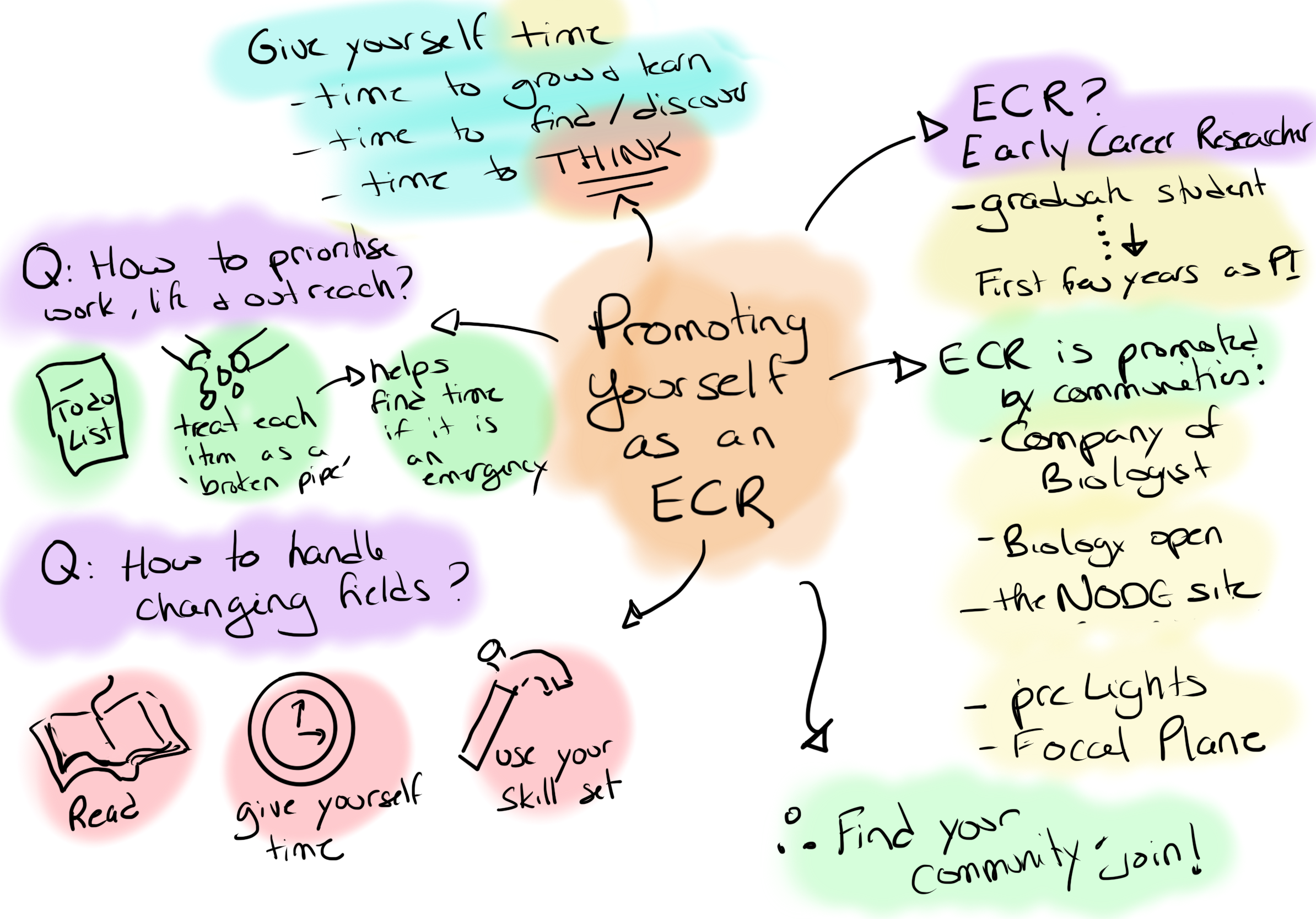Promoting yourself as an ECR – recording now available
Posted by the Node, on 15 March 2022

On Wednesday 23 February, in collaboration with our sister sites FocalPlane and preLights, we welcomed three fantastic panellists, Maria Abou Chakra, Pablo Sáez and Sarvenaz Sarabipour, to our webinar focussed on promoting yourself as an early-career researcher. It was great to have so many questions coming from the audience and we hope that you enjoyed the event as much as we did. You can find a recording of the panel discussion below, or on The Company of Biologists YouTube channel.
The Company of Biologists has a number of initiatives aimed to help ECRs that we discussed in the webinar:
- Funded places at Workshops
- Travelling fellowships
- DMM Conference Travel Grants
- Biology Open – Future Leader Reviews
- FocalPlane Network
- The Node Network
There were a few questions that we didn’t have time to address during the discussion, which Maria and Sarvenaz have answered here:
How advantageous/disadvantageous is having interdisciplinary training at different stages of career when one wants to apply for a faculty position?
MAC: Interdisciplinary training can be advantageous when trying to communicate across disciplines/field, it gave me a broader point of view, and helped me switch topics and methods more easily. That said, it is not always perceived as a good feature in research, it was placed as a weakness when I applied for grad school, it was seen as being dispersed and lacking focus.
SS: In the long run (the duration of a scientific career), interdisciplinary training is very advantageous. It broadens one’s perspective and widens an ECR’s network.
What are your favourite ways to build meaningful connections with researchers (especially outside your field and internationally) aside from in-person conferences?
MAC: My prefered way is to have virtual coffee/tea meetings with casual conversations.
SS: There are valuable books written on this topic and this stage of career development. Seeking good mentors that can help you navigate the ECR stage is critical. Peer support can help too. Online support communities such as GradSlack and the Future PI Slack can help.
What advice or tips would you give to people looking for a laboratory to do the PhD in?
SS: PIs typically describe their desired characteristics in new colleagues in the job advertisement. Every researcher also brings unique qualities to a lab and these are valuable. Other aspects can be discussed with the PI during job interview and lab onboarding.
Advocating for equitable access (conference/parents/underrepresented students) seems to fall on the ECRs who are affected by the lack of access. It can be a large side job. How do you balance advocacy with career advancement?
MAC: Everything comes at a cost, so when I’m deciding whether to help/volunteer my time I make sure I will be able to fulfil my commitment (you can be left with very little free time). I usually step up to advocate because I feel it will help others and I don’t want to work in a field/place that is ignoring systemic inequities. I ensure that my work and research is always on track, but as a parent/caretaker I am already at a disadvantage in terms of career advancement whether I stay silent or advocate.
What steps should I take as a PhD or Postdoc to prepare myself to be a PI?
SS: Early discussions with advisors/PIs/mentors can be very helpful to shape your way of thinking regarding research and career development. Conversations with fellow graduate and postdoctoral researchers and shared wisdom can also be helpful.
How do you identify collaborators for on-going research and future grant applications?
SS: It is not easy to find collaborators since connections develop over time and interests may not always match. Initiating discussions after departmental seminars, other online webinars, at conferences or at local events and retreats can help. Online networking and career development platforms can also provide access to a larger pool of academics. Scientific societies also often fund discussion groups, ECR committees or workshops where junior and senior academics meet and discuss research.
You can also check out Pablo twitter thread for his additional answers:
Finally, we would like to thank everyone who was involved in making the event a success, especially our panellists, Maria, Pablo and Sarvenaz. Please let us know if you have any suggestions for events you would like to see from our community sites in the future.


 (No Ratings Yet)
(No Ratings Yet)